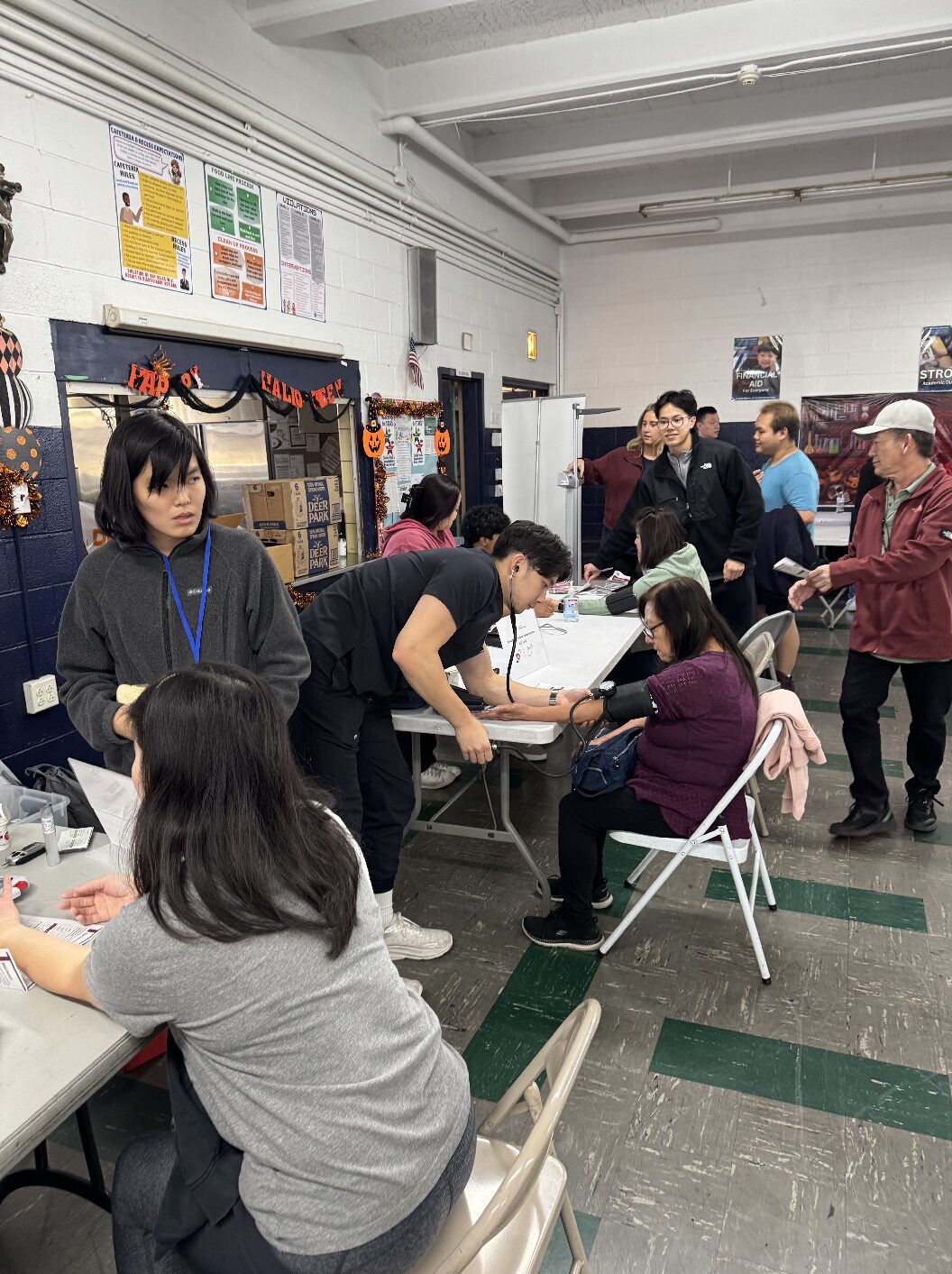A New Approach to Blood Pressure Diagnosis
According to a 2021 study, 37.3 percent of patients had undiagnosed hypertension with 27 percent of patients having diagnosed yet unmedicated hypertension from the years 2012 to 20171. However, post-Affordable Care Act, those who gained insurance were more likely to be diagnosed and medicated for hypertension. This has further widened the gap between those who are insured and those who are uninsured, including potentially undocumented individuals. Such a disparity in diagnoses has echoed throughout America, specifically within the undocumented, uninsured minority communities. These groups include Southeast Asian immigrants as well as French-speaking West African and Nigerian immigrants2,3.
To combat this health crisis that many face, the Institute of Clinical Bioethics has implemented a program in the Greater Philadelphia Area in hopes of providing a paradigm for an eventually larger, more widespread initiative. As of January 2025, Joshua Lewis (BS, BSN, RN), Dr. Sohiel Deshpande, Dr. Shrikanth Sampath, Benjamin Gabrieliants (ICB Undergraduate Research Fellow), and Andren Chen (ICB Undergraduate Research Fellow) have developed the Blood Pressure Buddies Program. This initiative has already provided automatic blood pressure cuffs to eight patients within the Asian communities served by the bimonthly Asian Health Promoter program.
Implementation and Design of the Blood Pressure Buddies Program
The Blood Pressure Buddies Program was first initiated in October 2024 at the Asian Health Promoter hosted at St. Thomas Aquinas Church in South Philadelphia. In the first month alone, three patients received blood pressure cuffs, jumpstarting the initiative.
An obstacle that the team had to overcome was determining the criteria that patients must meet in order to receive a blood pressure cuff. After careful discussion, the team determined that patients who record a blood pressure above 140/90 twice and have not been diagnosed with hypertension should be considered for the program. When given a blood pressure cuff, patients leave their contact information and receive a form to fill out with their bidaily blood pressure measurements. The measurements are taken twice daily–once at the beginning of the day upon waking and again before going to bed. These times are ideal for measuring blood pressure, as these measurements are most reflective of patients’ day-to-day numbers. Joshua Lewis and his team of registered nurses contact the patients twice a month to confirm their numbers are stable and they are properly following instructions. At the end of the month, the patients with hypertension will drop off all supplies at the health promoter site. At the next health promoter session, those patients will bring in their charts for on-site medical residents to review, provide guidance, and refer them to appropriate medical services.
Future Direction
On January 22, 2025, the Blood Pressure Buddies Program received a $3,000 Penn Medicine CAREs Grant to expand its implementation to other health promoter sites, including the African Health Promoter site, which serves patients monthly on a consistent basis. The Institute of Clinical Bioethics and the Blood Pressure Buddies team will continue to develop this program as a new approach to combating undiagnosed hypertension.
References:
- Huguet, N., Larson, A., Angier, H., Marino, M., Green, B. B., Moreno, L., & DeVoe, J. E. (2021). Rates of Undiagnosed Hypertension and Diagnosed Hypertension Without Anti-hypertensive Medication Following the Affordable Care Act. American journal of hypertension, 34(9), 989–998. https://doi.org/10.1093/ajh/hpab069 ↩︎
- Commodore-Mensah, Y., Selvin, E., Aboagye, J. et al. Hypertension, overweight/obesity, and diabetes among immigrants in the United States: an analysis of the 2010–2016 National Health Interview Survey. BMC Public Health 18, 773 (2018). https://doi.org/10.1186/s12889-018-5683-3 ↩︎
- Kilo, O. (2023). The association between working habits and hypertension among first-generation African immigrants (Doctoral dissertation). Walden University. Retrieved from https://scholarworks.waldenu.edu/dissertations/15525 ↩︎

